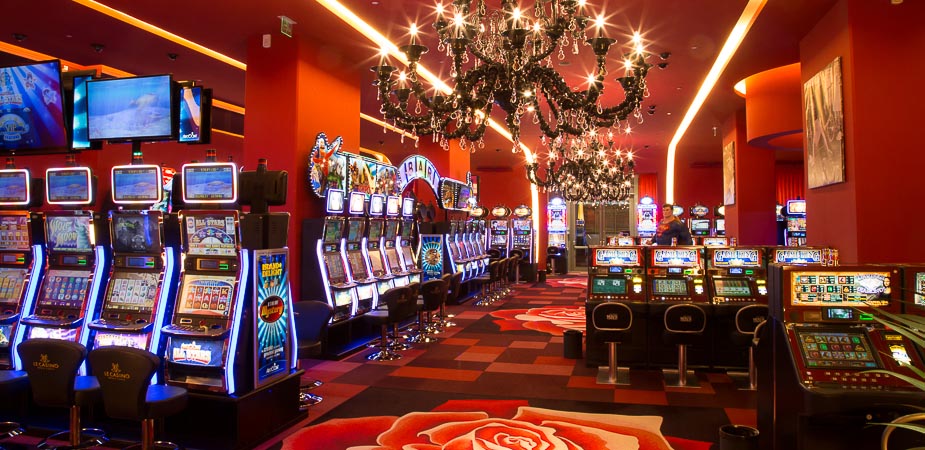
Casino experiences have long captured the interest of people around the planet, becoming an integral part of both fun and society. From the glimmering lights of Las Vegas to the immersive experience of online gaming, these games evoke excitement, risk, and sometimes even a sense of remembrance. They are beyond simply entertainments; they have woven themselves into the texture of our lives, influencing various aspects from cinema and songs to style and writing.
The appeal of casino games transcends the wagering aspect, tapping into larger themes of luck, chance, and human behavior. As players assemble around a card table or turn the roulette wheel, they engage in an timeless ritual that echoes with our communal desire for adventure and instability. This obsession has led to the emergence of numerous references in cinema, music, and video games, showcasing how deeply entrenched these games are in popular culture. Whether it is the high-stakes tension of a legendary caper or the vibrant nightlife portrayed in music videos, casino games have established a substantial place that reflects our relationship with risk and reward.
Social Significance of Casino Activities
Casino games have played a pivotal role in social contexts throughout the ages. Stemming from old civilizations, forms of chance were often linked to rituals or events. For example, early forms of gambling can be traced back to ancient China and the Roman Empire, where die games and wagering on results were popular pastimes. These activities not only functioned as entertainment but also as means of connecting people, facilitating relationships among individuals within societies.
As cultures evolved, so did the complexity and structure of casino games. The creation of formal casinos in the 17th century, particularly in Italy, marked a major shift in how games were perceived and structured. With specific spaces for gaming, the casino became a social hub where people from different backgrounds convened. This evolution contributed to the legitimization of the industry, transforming it from a mere pastime into an established industry that influenced the economy and policy.
The impact of casino games on popular culture cannot be overlooked. As they were brought into the limelight in books and film, games such as Texas Hold’em and blackjack became symbols of risk, chance, and tactics. casino online non AAMS Famous characters and stories have developed around these games, reflecting societal views towards fortune, wealth, and vice. This fascination with casino activities has permeated various forms of media, solidifying their status in the public imagination and linking them to broader cultural narratives throughout the ages.
Representation of Gambling Activities in Media
Gambling games have long been a popular theme in different types of entertainment, reflecting both the excitement and complexities of the world of gambling. Movies such as Ocean’s Eleven and Casino Royale portray figures who navigate high-stakes environments, showcasing not only the allure of the gambling environment but also the tactics and choices that come with playing popular games like poker and 21. These movies often dramatize the exhilaration of winning and the potential consequences of losing, encapsulating the dangers involved in betting.
TV programs have also explored the world of gambling activities, often integrating them into the plot as a setting for character development and conflict. Series like Las Vegas depict the experiences of casino workers and casino-goers, highlighting the lively, often chaotic energy of the gaming floor. Reality shows featuring intense gambling competitions further emphasize the fascination of gambling activities, drawing viewers into the tension and strategy involved in each game. Through these depictions, media not only entertains but also sparks conversations about luck, expertise, and the nature of randomness.
Video games have increasingly integrated casino games into their structure, allowing players to recreate the experience of betting without financial risk. Titles within the landscape of online gaming often include virtual slots, online poker, and other casino favorites, creating an engaging environment that mirrors real-life gameplay. These digital representations make casino games accessible to a worldwide viewer base, appealing to both players who indulge and those who enjoy the thrill of virtual experiences. As a result, the representation of gambling activities in media continues to shape public perception and importance, highlighting their role in entertainment and the cultural landscape.
Effect of Gambling Activities on Communities
Casino games have a meaningful effect on society, influencing various facets of culture and social behavior. They often function as a venue for community engagement, where people come together to enjoy a common experience. Game nights with friends or visits to casinos become social activities that build connections and create memories. This collective aspect boosts the entertainment value of casino games, making them a favored choice for festivities and leisure activities.
Additionally, casino games have been depicted in countless films, TV series, and literature, shaping perceptions and opinions towards gaming and gaming. Icons like James Bond competing in baccarat or the high-stakes poker scenes in films have embedded these games in the shared imagination. This depiction often idealizes the culture associated with casino activities, attracting new players and influencing trends in both fashion and conduct. These representations can ignite curiosity and lead to a deeper investigation of the nuances of gambling.
Nonetheless, there are also negative implications linked to the popularity of gambling activities. The temptation of quick monetary gain can lead to problem gambling and economic troubles for some individuals. The community must grapple with these consequences, advocating for responsible gaming and education of the dangers involved. Finding a balance between the fun aspect of gambling activities with the risks is crucial to ensure that they continue to be a beneficial aspect of our cultural landscape.
